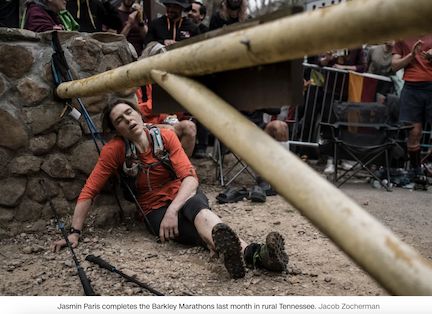Blinded by the Ordinary
On December 17, 1903, Orville and Wilbur Wright, bicycle merchants who went on to become the fathers of modern aviation, sent their sister a telegram. It read, “Sustained flight for 59 seconds. Hope to be home for Christmas.” Excited by the news, she took the telegram to the local Dayton, OH newspaper.
The paper found the telegram noteworthy and ran a small headline on the back page. It read, “Popular bicycle merchants to be home for Christmas.”
Pastor James R. Noland, Former Pastor, The Church of the Good Shepherd, Vienna, VA
Says pastor Noland, “Sometimes we miss the extraordinary because we are blinded by the ordinary.”
We serve an extraordinary God. Don’t miss Him in the mundane. “Open my eyes to see the wonderful truths in your instructions” (Psalm 119:18).
Illustration Exchange
Never Hurt Your Mommy
Gene Simmons (born Chaim Witz in Haifa, Israel), known as the over-the-top, theatrical front man for the world famous, hard rock band KISS, never indulged in drug or alcohol use. That's an amazing revelation, given the party hardy rock-n-roll culture.
But Gene had an interesting motivation for staying on the straight and narrow. His mother, Flora, lived through the Holocaust and survived the horrors of the Mauthausen concentration camp in Austria.
The Jerusalem Post reports, “I’m her only child,” ... “I knew I had no right to hurt my mother. Life had already done enough to her.”
They go on to site a fuller quote from a famous internet meme of Simmons describing his first major interview with Rolling Stone in the 1970s, saying:
“When I met the Rolling Stone writer, I was very careful to cultivate the mystique of the demon. I wore all my spider and silver jewelry and my leather pants. I puffed my hair as big as it could go. With my seven-inch platform boots with silver dollar signs on them and black nail polish, I thought I was ready to project the perfect rock-and-roll image.
"Then, at one point, the doorbell rang. I answered it, and there was my mother at the door with enough food to feed the world: fresh soups, veal chops, pancakes, jams, and cakes.
"She insisted that the writer and I – whom she referred to as 'hungry boys' – stop what we were doing and eat. She kept calling me by my Hebrew name, Chaim, and told the writer that I was a good boy. The big, bad demon was just a mama’s boy.”
The meme shows a towering, fully decked-out Simmons standing with his tiny, elderly mother.

Photo Credit/Attribution Unknown
Simmons' love, concern, compassion, and HONOR of his mama is truly admirable. And using that as motivation to be sure he never "does her wrong" is as good as any motivation one might come up with. Yet, should we really need anything so harrowing, so horrific to prompt us to always want to bring only honor to our parents? Shouldn't we all strive to do so just because it's the right thing to do?
“Honor your father and mother"—which is the first commandment with a promise—“so that it may go well with you and that you may enjoy long life on the earth” (Ephesians 6:2-3, NIV).
Run THE Race
Various news outlets report:
On Friday, March 22 [2024], Jasmin Paris became the first woman to ever complete the infamous Barkley Marathons. The 40-year-old mother from Scotland completed the 100-plus mile race in 59 hours, 58 minutes and 21 seconds. That left just one minute and 39 seconds to spare when she hit the yellow gate.
Few people who start the race ever finish it, with some years seeing no finishers at all! In fact, only 20 runners have ever fully completed the course!
So what is the Barkley Marathons and why is it considered the toughest and quirkiest race in the world?
The race began by former ultra-runner Gary Cantrell, better known as ‘Lazarus Lake,’ and his friend, Karl ‘Raw Dog’ Henn in 1986. To Henn, Cantrell had mocked the seemingly unathletic escape of James Earl Ray, the assassin of Dr. Martin Luther King Jr., who covered only 12 miles during his 60 hours on the run, saying, 'I could do at least 100 miles in that time.'
It was from that joke and Lake’s twisted sense of humor that the Barkley Marathons were born. Originally the race was approximately 55 miles with 25,000 ft of elevation gain, but was later extended in 1989 to 100 miles. [5 20-mile loops]
The race has been run every year since, and as described above, has become even more challenging over time.
The race can start anytime between midnight and noon on race day with a one-hour warning from the sound of a conch shell. Later, the lighting of a ceremonial cigarette marks the race’s official beginning. The 20-mile loop covers the exact horizontal distance and does not take into account changes in elevation, indirect paths or getting lost. One of the other quirky dimensions of the race is that runners are required to find 9 -14 books around the state park and take out page numbers that correspond to their changing bib number each round. They must return the pages to Lake every lap to prove they didn’t take any shortcuts.
Upon Paris' historic victory she said, “At the end every fiber of my body was screaming to stop. I didn’t even know if I touched the gate. I just gave it everything to get there and then collapsed, gasping for air.”

While one can't imagine the kind of training Jasmin had to go through to run 100 miles, the quirky nature of this race reminds one that not every race matters equally.
As the old saying goes, "The trouble with the rat race is that even if you win you're still a rat." Yet we are called in scripture to keep running! Endure to the end! For a great prize awaits those who do!
In 2 Timothy 4:6-8, Paul says, "For I am already being poured out like a drink offering, and the time has come for my departure. I have fought the good fight, I have finished the race, I have kept the faith. Now there is in store for me the crown of righteousness, which the Lord, the righteous Judge, will award to me on that day—and not only to me, but also to all who have longed for his appearing."
The race Paul trained for was THE race that mattered! It was one of eternal significance, and he calls us to run the same race as well.